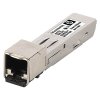Hello all,
So, we're building a villa for the whole family and it consists of 3 floors, first floor has 5 large areas for meetings, business dining room etc... 2nd floor has 4 master bed room with their own living rooms (total of 8 big rooms) and the 3rd floor has 2 master bedrooms with their own living rooms as well so a total of 4 big rooms.
I'm planning to have 2 Ethernet outlets from the wall in each room so I can be fixable to where I can connect the desktop PC or a wireless AP in the room and have 3 Ethernet outlets in the large rooms in the first floor. Also I'm planning to make a NAS or probably make a whole server but not sure where to station it best. I'm the "IT" individual of the household (not educationally) but as more informative through experience and searches I do over the net, and I will be located on the 3rd floor so I thought it might be best to have the server on the 3rd floor? Also another thing to consider, i'm running 5 Ethernet ports from my main PC (NIC teaming) and planning to install NAS server with Raid 5 or 6 with 12+ HDD and a 4+ Ethernet ports to it so I can get advanrage of the writing speed without hitting the bottleneck, So I am guessing to get full advantage of the transfer rate, my PC and this NAS should be connected the same switch, right?
so thats a total of around:
11 outlets in the first floor
16 outlets in the 2nd floor
8 (+4 for NIC teaming) outlets in the 3rd floor
So what is the best layout for this? Do I put 2x-16 port switches in the first and second floor connecting them to the 3rd floor where the server will be?
All networks and cables are going to be Gigabit speed Cat6.
I might also add security cameras (IP cam) around the house recording the main doors where they gonna store records to the NAS through FTP.
I'd appreciated it a lot of I can get some information and help about this.
one more point is, should I get a firewall like this one here, and how will my server rack look like ultimately? whats on my mind is starting from top :Main router which gets the internet cable to it, then an output to the firewall router?, then to the switches down to the NAS and finally the APS on bottom?...
And thanks a lot
So, we're building a villa for the whole family and it consists of 3 floors, first floor has 5 large areas for meetings, business dining room etc... 2nd floor has 4 master bed room with their own living rooms (total of 8 big rooms) and the 3rd floor has 2 master bedrooms with their own living rooms as well so a total of 4 big rooms.
I'm planning to have 2 Ethernet outlets from the wall in each room so I can be fixable to where I can connect the desktop PC or a wireless AP in the room and have 3 Ethernet outlets in the large rooms in the first floor. Also I'm planning to make a NAS or probably make a whole server but not sure where to station it best. I'm the "IT" individual of the household (not educationally) but as more informative through experience and searches I do over the net, and I will be located on the 3rd floor so I thought it might be best to have the server on the 3rd floor? Also another thing to consider, i'm running 5 Ethernet ports from my main PC (NIC teaming) and planning to install NAS server with Raid 5 or 6 with 12+ HDD and a 4+ Ethernet ports to it so I can get advanrage of the writing speed without hitting the bottleneck, So I am guessing to get full advantage of the transfer rate, my PC and this NAS should be connected the same switch, right?
so thats a total of around:
11 outlets in the first floor
16 outlets in the 2nd floor
8 (+4 for NIC teaming) outlets in the 3rd floor
So what is the best layout for this? Do I put 2x-16 port switches in the first and second floor connecting them to the 3rd floor where the server will be?
All networks and cables are going to be Gigabit speed Cat6.
I might also add security cameras (IP cam) around the house recording the main doors where they gonna store records to the NAS through FTP.
I'd appreciated it a lot of I can get some information and help about this.
one more point is, should I get a firewall like this one here, and how will my server rack look like ultimately? whats on my mind is starting from top :Main router which gets the internet cable to it, then an output to the firewall router?, then to the switches down to the NAS and finally the APS on bottom?...
And thanks a lot


